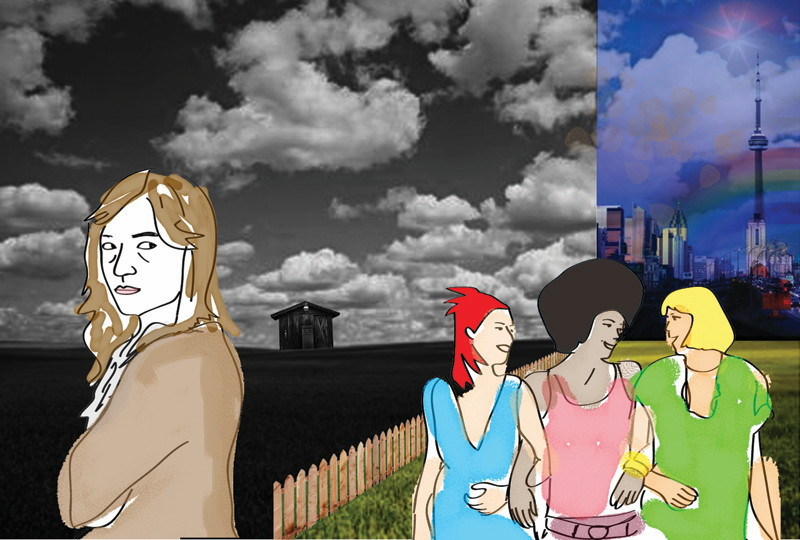The green grass in a (soon to be) white city
Reconsider those dreams of being elsewhere
As winter approaches in our cold Canadian city, we’ve doubtless all begun to hear the annual wistful hints by friends and colleagues who say they are considering a radical change in their lives.
Whether it’s their job, town or friends, this change always comes down to trading in the old for a newer, more exciting option.
While ignoring these endless ponderings is always an option, perhaps a little reasoning will shut them up so you can enjoy your frosty winter in peace.
We’ve all heard the trite expression “the grass is greener on the other side of the fence,” yet masses of people still spend their time considering exotic far-off lives.
The logical equivalent of cow tipping might be just what’s needed to save these dazed denizens from booking the next one-way ticket to the Amazon.
Particularly relevant to Winnipeg are those who wish to be anywhere in the world except our fair town.
Although a part of everyone wants to fly off to Toronto and make cutting-edge art in a gentrified warehouse, the reality is that there are ups and downs to living anywhere.
Try getting to your trendy studio when there’s smog alert, for example.
What makes this belief in a foreign paradise all the more precious is that everyone shares it.
The person from Manhattan grieves for their disconnect from nature, the native Costa Rican longs for snow, and the small town bumpkin dreams of living the cosmopolitan life in the big city.
Even if these desires were realized, yearnings would begin for some other reality.
The logic works along a continuum of glamour that supports consumerism, non-commitment and shallow hedonism.
At the “low enjoyment” end of the glamour spectrum are the lives of those who live in one-bar towns in the “middle of nowhere.” At the “high end” are those from the big city, making six-digit incomes and spending evenings socializing with the hottest names in business, fashion and film.
Too bad those supposedly at the “top” of this spectrum aren’t necessarily happy, evidenced by the interlaced worlds of money, fame, drugs and depression.
“ Although a part of everyone wants to fly off to Toronto and make cutting-edge art in a gentrified warehouse, the reality is that there are ups and downs to living anywhere
Rest assured those of you who live in towns not yet viewable on Google Maps, although this spectrum of life enjoyment/success is constantly enforced by a wide range of media and subtle hints in conversation (“OMG, you’re from New York? That’s, like, fierce”) it is indeed fictional.
There’s only so much time that can be put into feeling that one’s current situation is inadequate before eventually realizing that the grass on the other side is exactly the same colour.
I recently attended a workshop wherein participants were required to adhere to open space technology (OST). OST meetings require that everyone present accept that,
1. Whoever comes are the right people.
2. Whenever it starts is the right time.
3. Whatever happens is the only thing that could have.
4. When it’s over, it’s over.
Along with these principles was the law of two feet. If a participant finds themselves in a situation where they are neither learning nor contributing, they can use their two feet to go somewhere else.
These principles can be meaningfully applied to one’s life in order to counter this overwhelming propensity we have to imagine other, better realities.
As the temperature drops, cars cease to start and the people around you begin to yearn for something – anything – that is different, remind them of the law of two feet, and tell them to jump over the fence.
They’ll be back again soon enough.
Ezra Bridgman wishes that this article had been published in The Village Voice.
Published in Volume 65, Number 12 of The Uniter (November 18, 2010)







